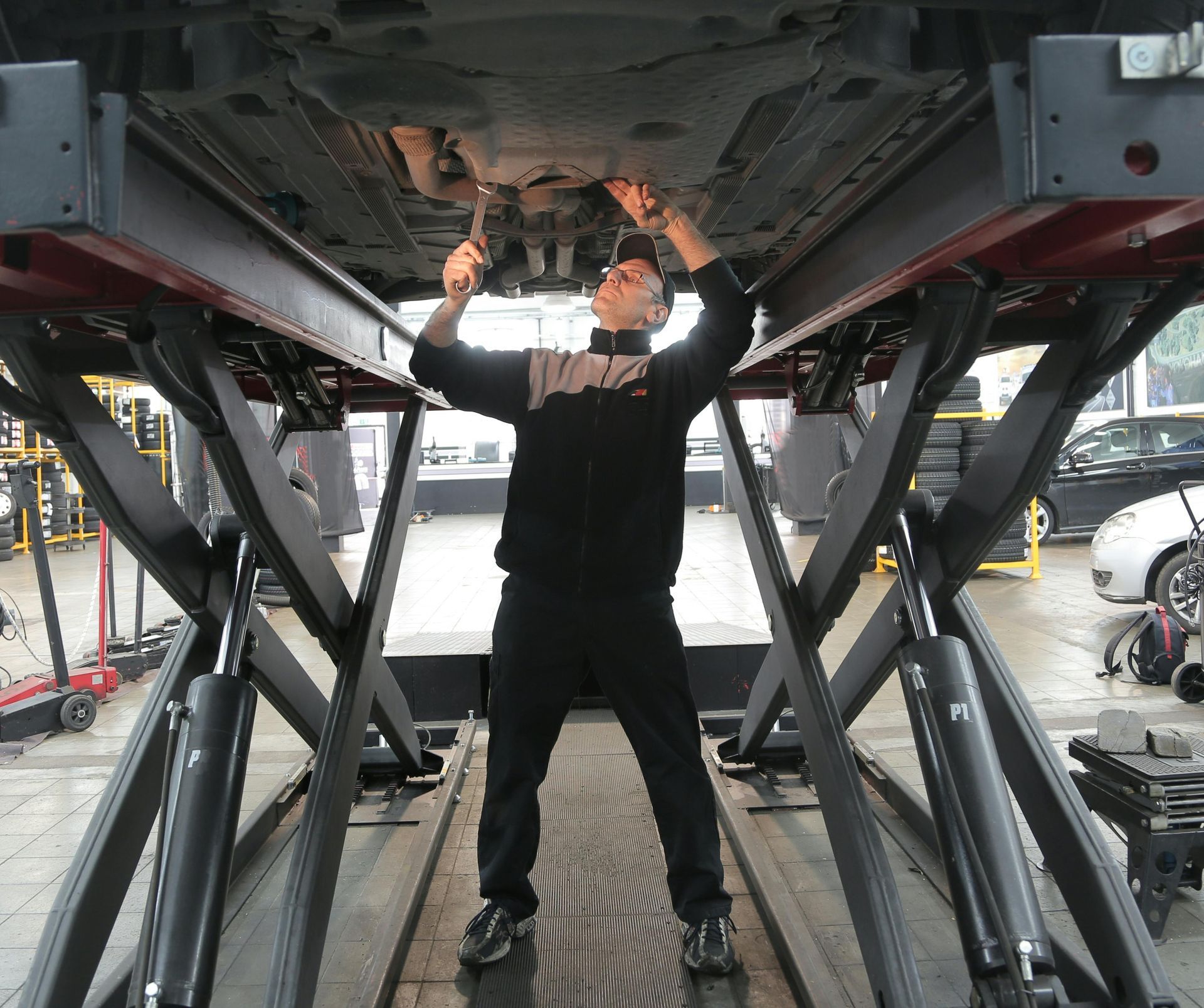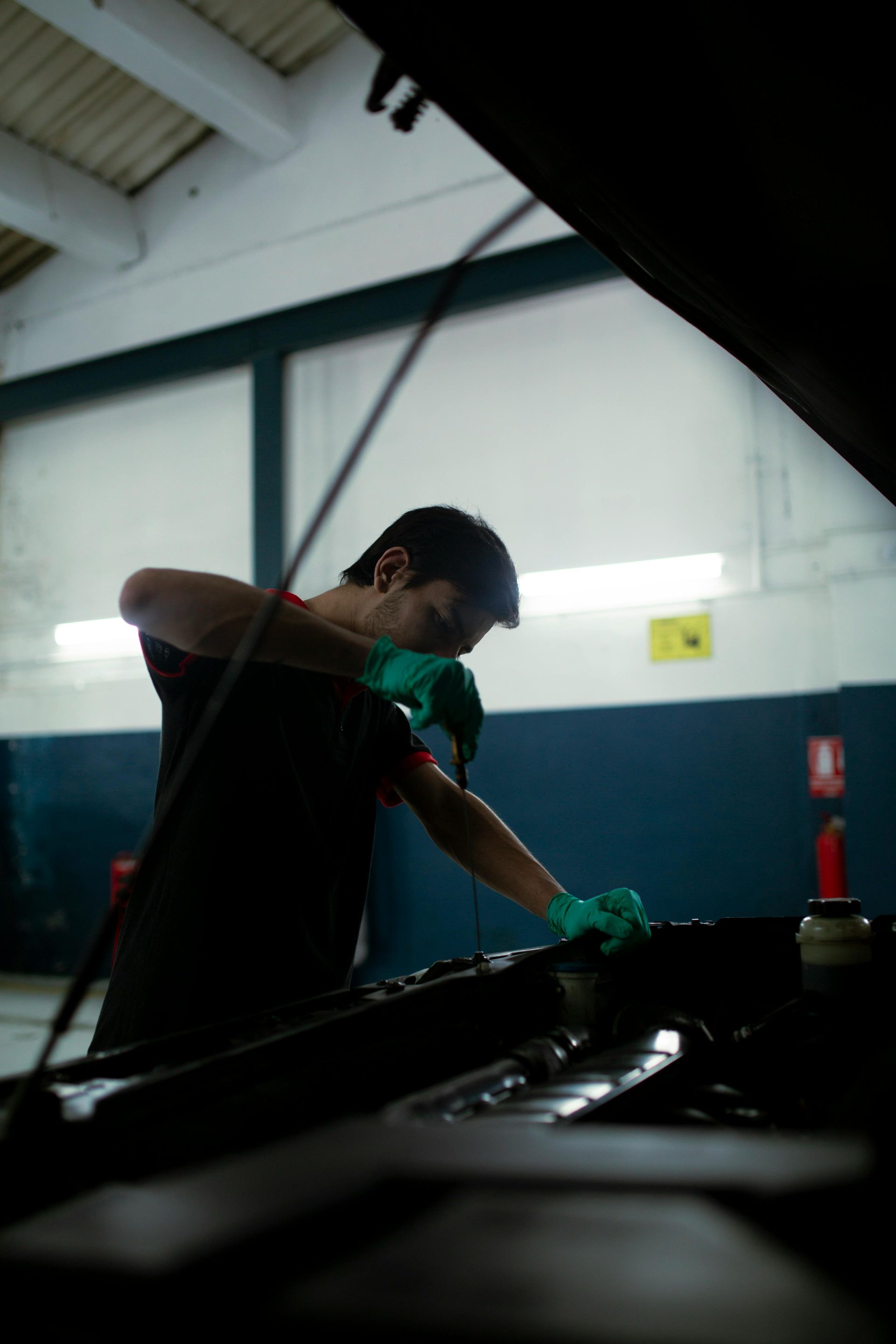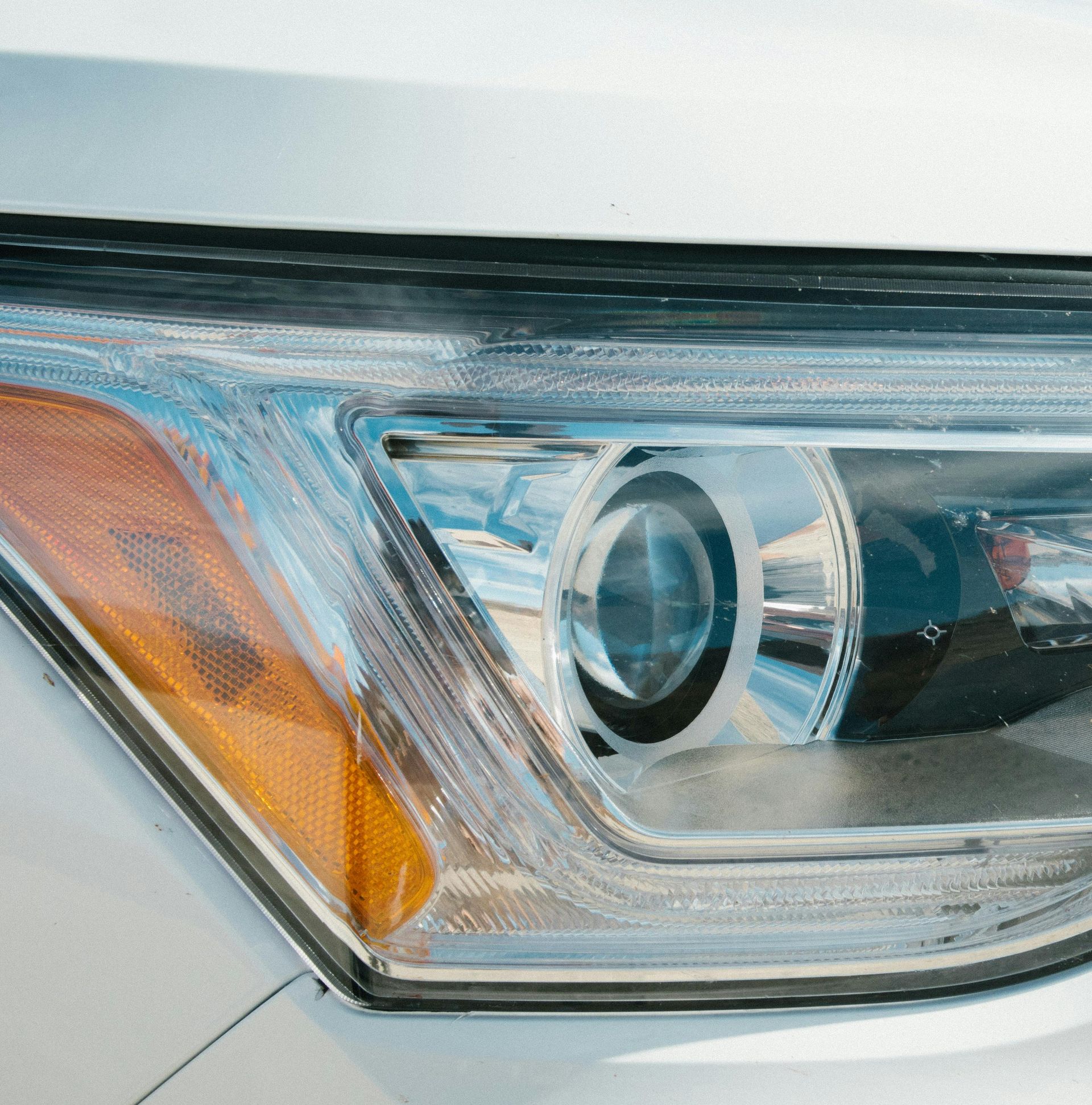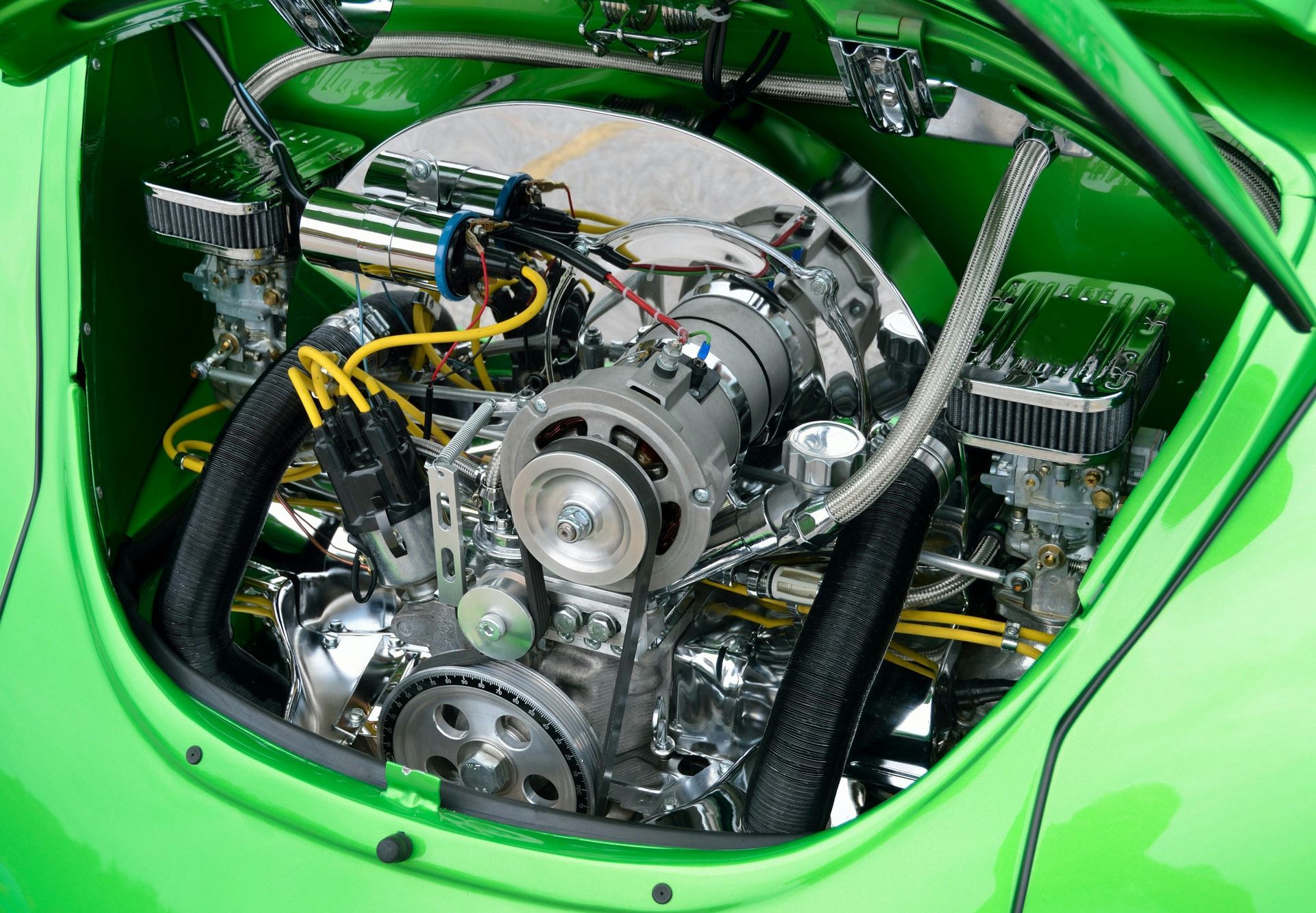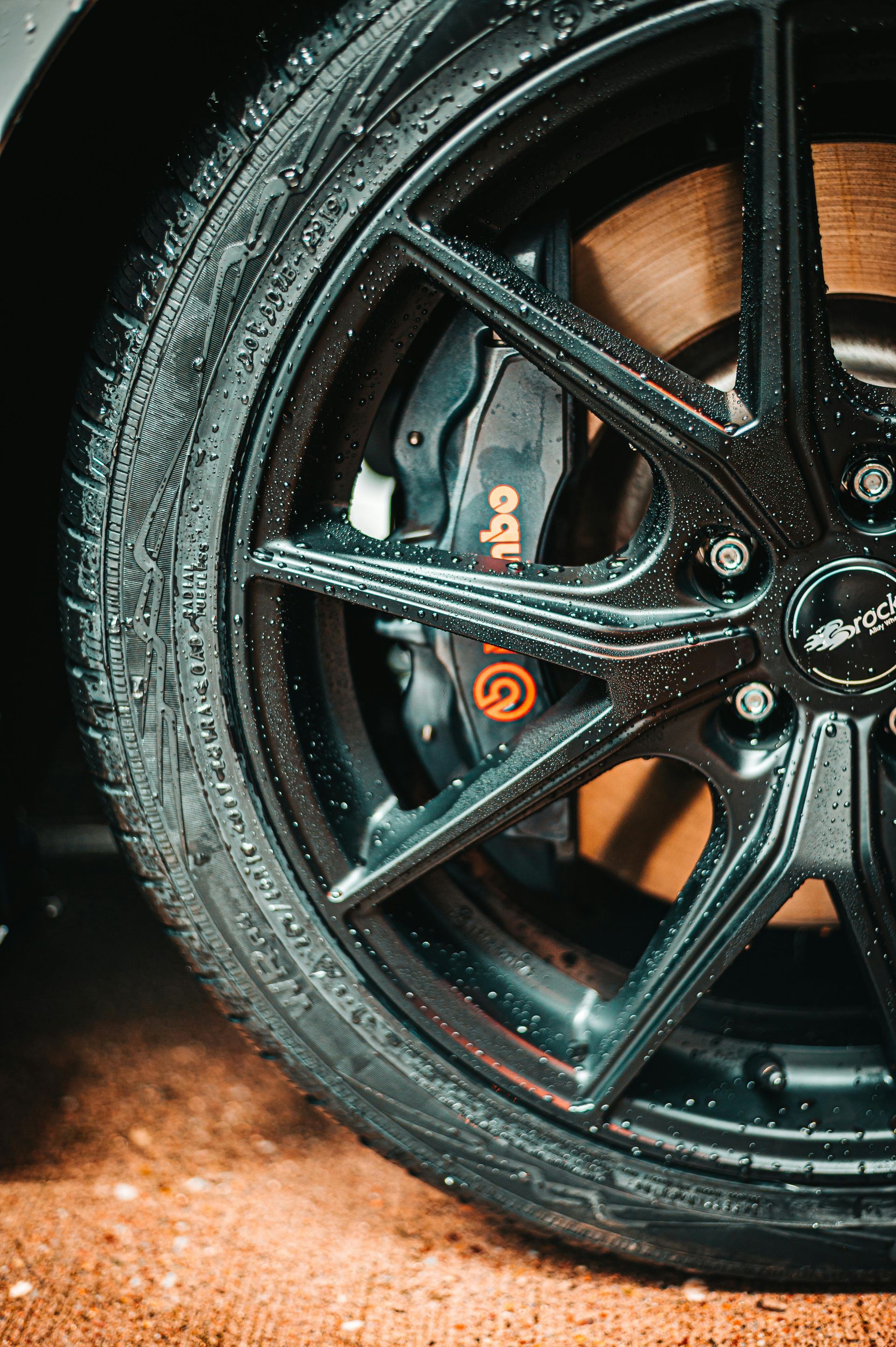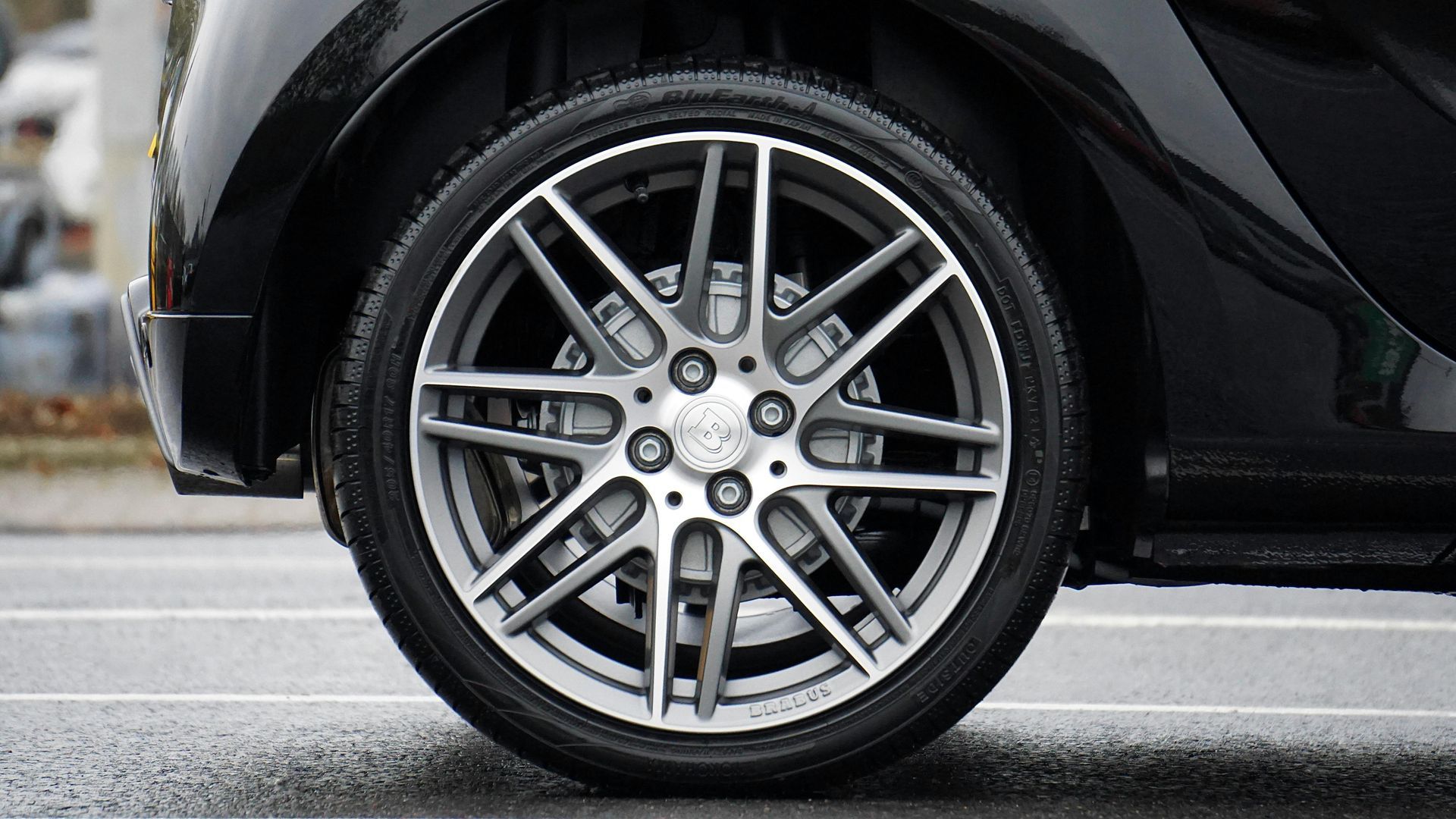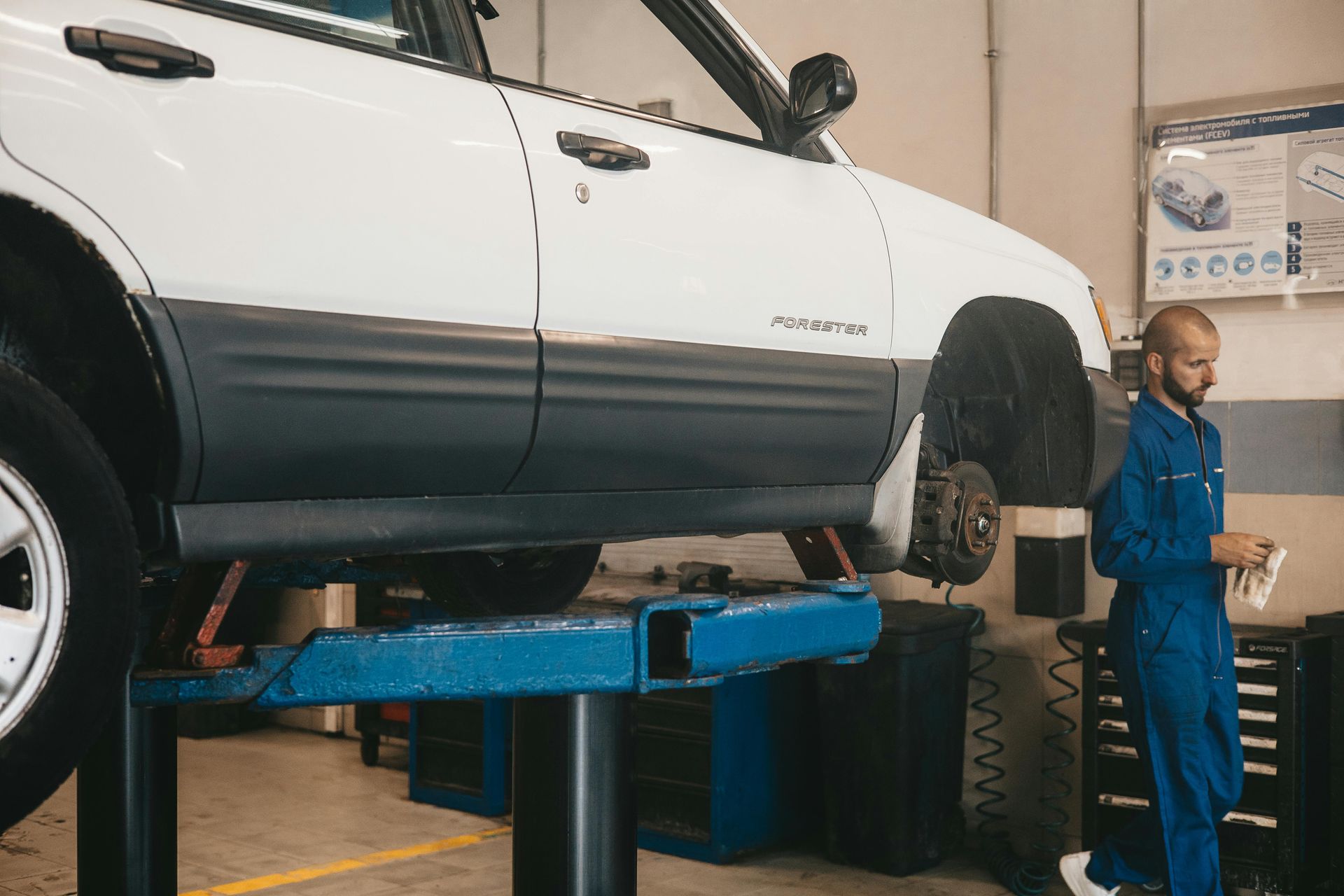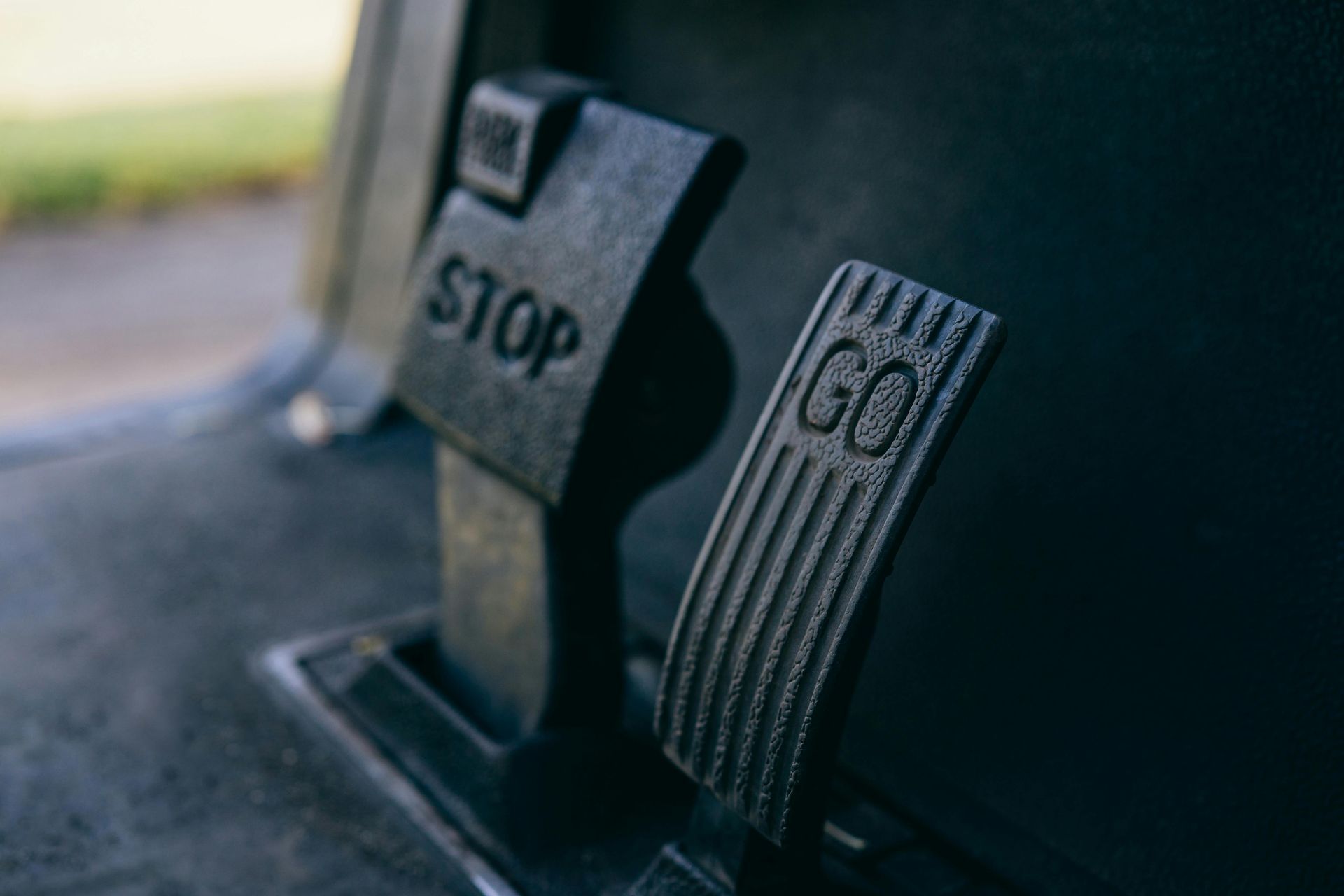Why Your Car Might Be Making That Strange Noise
You're driving down Highway 101 through Eureka when you hear it – a strange noise coming from your car that wasn't there yesterday. Your heart sinks a little as you wonder what's wrong and how much it might cost to fix. The good news is that many car noises are your vehicle's way of telling you about problems before they become expensive disasters. Learning to identify these sounds can save you money and keep you safe on Humboldt County's roads.
Squealing and Screeching Sounds
Brake Squealing The most common squealing noise comes from your brakes. Modern brake pads have built-in wear indicators that create a high-pitched squeal when your pads are getting thin. This is especially noticeable when driving down Eureka's hills or after navigating the winding roads to Trinidad.
If you hear squealing when you brake, don't ignore it. Brake pads are much cheaper to replace than brake rotors, which can be damaged if you wait too long.
Belt Squealing A squealing sound from under the hood, especially when you start your car on a foggy Eureka morning, often means a belt is loose or worn. Your car has several belts that power important systems like your alternator, power steering, and air conditioning.
Squealing When Turning If you hear squealing when turning corners around downtown Eureka, it could be your power steering system. Low power steering fluid or a worn belt can cause this noise.
Grinding Noises
Brake Grinding If squealing brakes are ignored too long, they'll start grinding. This metal-on-metal sound means your brake pads are completely worn out and the metal backing is grinding against your rotors. This is dangerous and expensive – stop driving and get help immediately.
Transmission Grinding Grinding when shifting gears (especially in manual transmissions) can indicate clutch problems or transmission issues. Given Eureka's hilly terrain, transmission problems can leave you stranded on steep roads.
Wheel Bearing Grinding A grinding noise that gets worse as you drive faster might be a wheel bearing. This can be dangerous because a failed wheel bearing can cause you to lose control of your vehicle.
Clicking and Ticking Sounds
CV Joint Clicking A clicking noise when turning, especially from parking lots onto Eureka's streets, often indicates worn CV joints. These are part of your car's drive system and are more common in front-wheel-drive vehicles.
Engine Ticking A ticking sound from your engine could indicate low oil pressure or worn engine components. In Eureka's stop-and-go traffic, engines work hard and need proper lubrication.
Turn Signal Clicking If your turn signal clicks faster than usual, you probably have a burned-out bulb. This is important for safety, especially during Eureka's foggy conditions when visibility is reduced.
Knocking and Pinging Sounds
Engine Knock A knocking sound from your engine, especially when accelerating onto Highway 101, can indicate serious problems. It might be caused by using the wrong octane gas, carbon buildup, or worn engine components.
Suspension Knocking Knocking when going over bumps or potholes (common after Eureka's winter storms) usually points to worn suspension components like struts or shock absorbers.
Whining and Humming Noises
Transmission Whining A whining noise that changes with engine speed might indicate transmission problems. This could be low transmission fluid or internal wear.
Differential Whining A whining noise from the rear of your car, especially when turning, could be your differential. This is more common in rear-wheel and all-wheel-drive vehicles.
Tire Humming A humming noise that increases with speed might be tire-related. Uneven tire wear, often caused by poor alignment, can create this sound. Eureka's coastal roads and occasional gravel can affect tire wear patterns.
Rattling and Vibrating Sounds
Heat Shield Rattling A rattling noise from underneath your car, especially after driving on rough roads around Humboldt County, might be a loose heat shield. While annoying, this is usually not dangerous.
Exhaust System Rattling Rattling from your exhaust system could indicate loose or damaged components. Salt air from Eureka's coastal location can accelerate exhaust system corrosion.
Interior Rattling Rattling inside your car might seem minor, but it can indicate loose trim pieces or worn door seals, which can let in Eureka's frequent fog and moisture.
When Noises Indicate Serious Problems
Immediate Attention Needed:
- Grinding brakes
- Engine knocking
- Loud squealing belts
- Metal scraping sounds
- Any noise accompanied by warning lights
Schedule Service Soon:
- Brake squealing
- Minor belt squealing
- CV joint clicking
- Suspension knocking
Environmental Factors in Eureka
Salt Air Effects Eureka's coastal location means salt air can accelerate corrosion of metal components, potentially causing unusual noises as parts wear prematurely.
Moisture and Fog High humidity can affect belts and electrical components, sometimes causing temporary noises that clear up as your car warms up.
Temperature Changes While Eureka doesn't have extreme temperature swings, the difference between cool mornings and warmer afternoons can cause expansion and contraction noises in various car parts.
What to Do When You Hear Strange Noises
Don't Panic Many car noises sound worse than the actual problem. However, don't ignore them either.
Note the Details Pay attention to when the noise occurs – during braking, turning, accelerating, or just sitting idle. This information helps mechanics diagnose the problem faster.
Check the Basics Sometimes noises have simple causes. Check your oil level, look for obvious loose parts, and make sure nothing is stuck to your car.
Get Professional Help While some car enthusiasts can diagnose problems themselves, most strange noises require professional diagnosis. Modern cars are complex, and proper diagnostic equipment is often needed.
Prevention is Key
Regular Maintenance Following your car's maintenance schedule can prevent many noise-causing problems. Regular oil changes, brake inspections, and belt replacements keep your car running quietly.
Listen to Your Car Pay attention to how your car normally sounds. This makes it easier to notice when something changes.
Address Small Problems Fixing small issues before they become big problems saves money and prevents roadside breakdowns.
Expert Diagnostics in Eureka
When your car starts making strange noises, don't let the problem get worse. The experienced technicians at Eureka Brake & Automotive have the knowledge and diagnostic equipment to quickly identify what's causing those mysterious sounds.
Our ASE-certified mechanics have been diagnosing car problems in Humboldt County for over 30 years. We understand how local driving conditions – from coastal salt air to Highway 101 commutes – affect your vehicle. Using factory diagnostic software and years of experience, we can pinpoint the source of strange noises and provide honest recommendations for repairs.
Located at 2002 2nd St in Eureka, we're open Monday through Friday, 7:30am to 5:00pm. Don't let strange car noises turn into expensive repairs or roadside emergencies. Call us at (707) 200-7097 or book your diagnostic appointment online today. We'll help you understand what your car is trying to tell you and get you back on the road safely.
